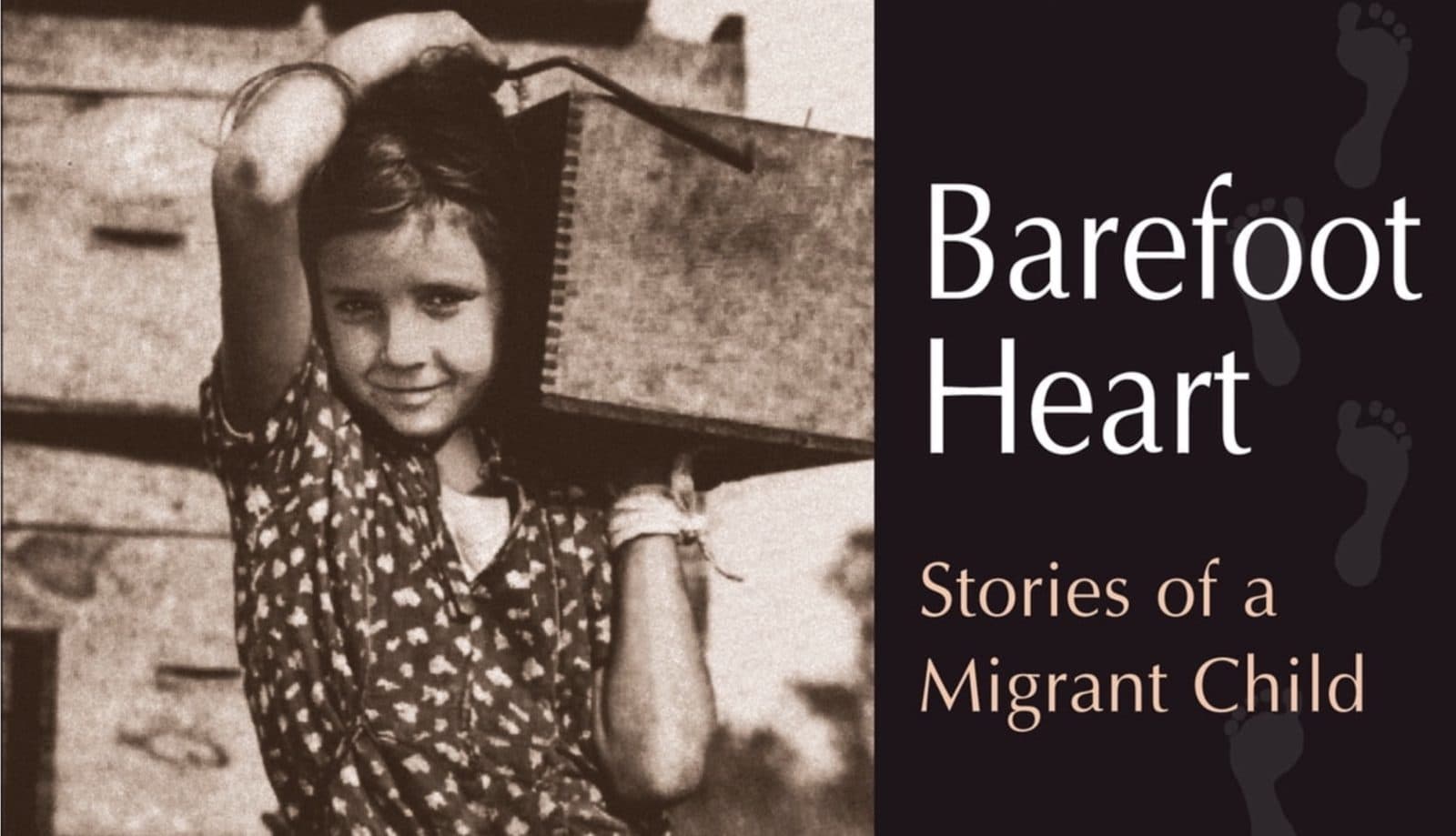Barefoot Heart is about Elva Treviño Hart’s life as a Mexican-American migrant farmworker during the ’50s and ’60s as a young woman.

Life for her and her family during that era was very difficult and unstable. In large part because of the prejudices and ignorance of the time. As Treviño Hart was growing up she experienced racial and class prejudices from the world around her while experiencing gender prejudices most predominantly from within her family. Those experiences often left her feeling alone and disconnected. This led her to discovering a path that ultimately proved to be where she found her place as a Mexican-American writer.
Life As Migrant Farm Workers
As Mexican immigrants, her parents were not able to get jobs other than working on farms. Her dad didn’t make it past third grade. He saw that his difficulty in getting work was due to his lack of education. With that awareness, he encouraged all his kids to attend school and graduate from high school. He made sure this was possible for his kids despite their migratory life.
Hart recounts in Barefoot Heart that when she was a young girl her family traveled back and forth between Pearsall, Texas, and McKinley, Minnesota. They did that to find seasonal work on farms. Work that had them picking fruit in Minnesota and picking peanuts in Texas. They spent their summers in Minnesota while they did most of their living in Texas.
She wrote about an experience during one of her family’s trips to Minnesota to work on a farm. The farmer’s wife visited them once in their little one-room home. She went there to give them her old frozen chicken because she was clearing her freezer for new fresh food.
Childhood Isolation
During the summer when her family was working in Minnesota, she had to sit by the road and run water back and forth to them. The rest of her family were working hard picking fruit, where she longed to be. Her father was very domineering and dictated how she was to live as a girl. Because she was younger and a girl, her dad saw her as lesser and not able to do the work that the rest of the family were doing. She carried these beliefs about herself that her father gave her into her adulthood. She said, “we couldn’t be waitresses either; it was better to have your daughters next to you in the fields, covered with pants, a work shirt, and a hat, where you could protect them.”
In Barefoot Heart, She wrote that with all those interfamily prejudices being imposed on her starting at a very young age she also experienced discrimination in her interactions with the white Americans around her. When she started attending public school, they had to take the school bus and were forced to sit in the back.
Segegration At School
Life in Texas was a life of segregation and isolation from the white folks. Before Treviño Hart was old enough to attend school she started experiencing her feelings of isolation, in one part because of her age and another because of her gender. “Then I was separated by age. My brothers and sisters were all teenagers, one or two years apart. … The only time I was all right was when I was alone”. Because of her big age difference with her siblings, she struggled to connect with them. Especially in the same way they connected with one another.
Public schools segregated Mexicans until she was in fifth grade. In first grade, her sister warned her not to speak Spanish at school. She warned her that teachers will put her in an area labeled “pig” for the kids that spoke Spanish. Her experiences of segregating at school and within her own family consistently reinforced her feeling alone.
Her Successful Careers
Despite her father’s views about her as a girl, he, fortunately, pushed her to graduate from school. It was during her years in school she discovered her ability to excel academically and rise above her situation. Her father also enabled her to go to college to get an undergraduate degree. This led her to eventually get a master’s degree. And afterward, a successful 20-year computer engineering career.
Her success seemed to further isolate her from the “normal” people and her family. Several years later she quit her career. She decided to become a writer. As a writer, she was able to rise above the prejudices of her past. To a place where she said, “I am no longer alone; I have found my pack.”